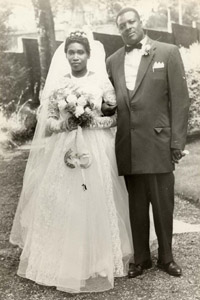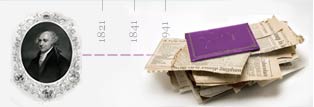Quick Tips
10 Quick Tips for tracing Caribbean family history

Start by adding all the details of you and your immediate family to your family tree. Adding as many details as possible now will make it easier to check dates and information later and brings your family tree to life.
Talk to family members to find out dates of births, marriages and deaths of parents, grandparents, aunts and uncles. It's useful to collect as many photos, family bibles and especially stories and memories from older members of your family. Remember family history isn't just about collecting dates and going back as far as you can. It's just as important to record in your family tree all the stories, traditions and details which make your family unique.
Many people from the Caribbean use family and pet names. Try to record pet names and official names in your tree as the official name will be important for looking at government, employment and also religious records.
Try and work out from family members when your family came to Britain and from which country in the Caribbean. Although a large portion of migration into the UK happened in the 20th Century, black people have been living in Britain for hundreds of years. You can search the Birth, Marriage and Death records in England and Wales on Genes Reunited to work back to the first record of your family in the UK. Marriage and birth certificates hold useful information like names and occupations of fathers as well as mothers' maiden names - helping to grow your tree. If you think part of your family was in the UK before 1900, try searching the 1901 census for details of them.
Researching records in the Caribbean can be difficult as very little information is available online and not all of the written records have survived in good condition. In most cases you will need to consult the records offices in the relevant country that your ancestors came from in the Caribbean. Records which could hold a clue to your ancestry include: birth, marriage, death and census records for each of the Caribbean islands, probate records and employment records - especially if your ancestor was in the military or worked at sea.
Visiting records offices in the Caribbean or paying a researcher is expensive. So don't forget to add all the information you collect to your family tree on Genes Reunited. By regularly searching for your relatives' names on Genes Reunited, you can discover matches with other family trees. This enables you to contact other Genes Reunited members who share your ancestry. As well as finding cousins and relations you didn't know you had in the UK and the Caribbean, you can share information which will lead you to your family history. You may be able to get a relation who still lives in the Caribbean to visit records offices for you.

Hundreds of thousands of black people in the Caribbean in the 1800s were there as a result of the slave trade, although you cannot assume your ancestors were slaves,as they may have migrated freely later in the 19th Century. Tracing ancestors in slavery can be difficult and often means tracing records of the slave owner. Where slaves were freed or baptised/buried by the clergy records of individual slaves may exist, but often the best source of information is in records relating to property, wills and plantation records of the owner. For more information of these records and where they are kept see movinghere.org.uk and the National Archives of England and Wales.
While official records may not be able to lead you to your ancestors' origins before the slave trade, don't let this stop you! While European countries tend to rely on documented records held by the government, many African traditions have developed much richer oral histories which preserve not only genealogy but also details of how people lived. Enslaved Africans fought to keep their traditions alive, and their success is seen in the African traditions, religions, stories and Obeah (folk medicine and religion originating in West Africa) that still exist in the Caribbean today.
Clues to your family's roots could lie in everyday conversations and objects in your home. Think about family traditions, saying, stories and even recipes that have been passed down. Pet names, or words you use everyday with your own parents and children could have roots in African languages and traditions.
Every clue that you uncover should go straight into your family tree as no matter how small the detail, it helps to preserve a picture of your family history. And search regularly to see if anyone else is researching your family history on Genes Reuntied. By working together with distant cousins and people who share your surname, you may be able to discover your roots in the Caribbean and beyond.
Remember, the more people who add their family trees to Genes Reunited, the easier it is for everyone to discover their family history - creating a resource for future generations.
For more tips and information look at our Caribbean roots section

